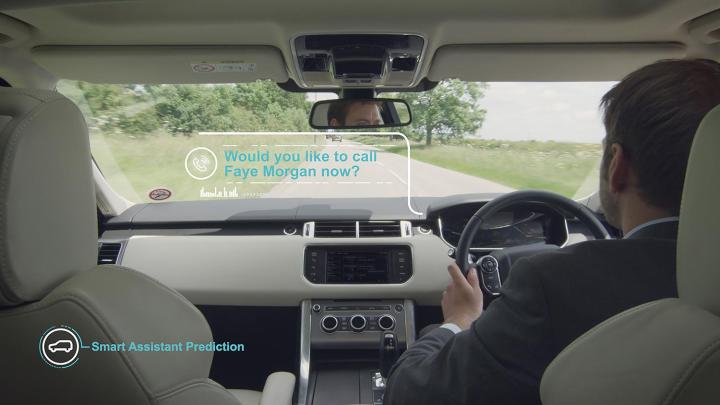
What the British firm is planning next, however, will be without a doubt its most impressive achievement yet.
Land Rover has set out to develop a truly intelligent, self-learning vehicle that continuously adapts based on driver habits, driving style, and convenience preferences.
An artificially intelligent car may sound like the beginning of a Terminator film, but its design is based off two main tenants: safety and convenience.
“The aim of our self-learning technology is to minimize driver distraction, which will help reduce the risk of accidents,” says Dr. Wolfgang Epple, Director of Research and Technology for Jaguar Land Rover. “Presenting the driver with information just at the right time whilst driving will reduce both cognitive distraction and the need for the driver to look away from the road to scroll through phone lists, or adjust mirrors, temperature or seat functions while on the road.”
So what exactly can an A.I.-powered Land Rover do? Let’s go through a typical day in a self-learning luxury vehicle.
It’s a brisk winter morning in Yorkshire, and you’ve just finished your hot buttered toast to start the morning. It’s time to head into town, but you dread the sting of the harsh elements outside. Luckily, your Land Rover’s ‘Smart Assistant’ has already predicted your time of departure based on your weekly routine, and has set the cabin to your preferred temperature.
The car is linked to your smartphone, of course, so it sends you a helpful reminder of the coming day’s events: little Jimmy’s football practice (don’t forget the helmet), a financial meeting at noon, and a dinner date after work (don’t forget the flowers).
Your personalized keyfob is detected as you come outside, and the Land Rover adjusts seat position, mirror settings, and entertainment preferences before you even get inside. Impressed yet? We’re just getting started.
Your car knows exactly where you’re going on this Tuesday morning, so its navigation loads the best route to Jimmy’s football camp, and tunes to the combined entertainment settings of both occupants. Keep in mind that this is all happening without any driver input.
When Jimmy exits the vehicle, the car senses it and automatically switches back to your personal preferences. It even increases the volume since there’s no conversation to overpower.
While at work, your Land Rover monitors traffic levels and suggests the best departure time to get home promptly. If you’re running late, it’ll notify your people for you. Forgot to check the gas gauge? No worries, your car will let you know and map the best course to your preferred fueling station.
Jaguar Land Rover’s new technology will even predict whom you’ll call in a certain situation. If you’re in an accident, insurance companies, police, and close family members are a given, but what about when your high school sweetheart’s song comes on? Does it prompt the awkward call for you?
Joking aside, when you have a car that is continuously learning, adjusting, and plotting – I mean – planning its next trip, you’re ensured a comfortable, safe, and enjoyable driving experience.
“Up until now most self-learning car research has only focused on traffic or navigation prediction,” continues Epple. “We want to take this a significant step further and our new learning algorithm means information learned about you will deliver a completely personalized driving experience and enhance driving pleasure.”
Editors' Recommendations
- If you want to drive this electric Jaguar, you’ll have to play Gran Turismo
- Jaguar Land Rover is developing this amazing 3D head-up display
- Jaguar Land Rover built an A.I.-equipped car that responds to the driver’s mood
- Jaguar Land Rover tests sensory steering wheel to combat distracted driving
- 2020 Land Rover Discovery Sport uses cameras to spot off-road obstacles





